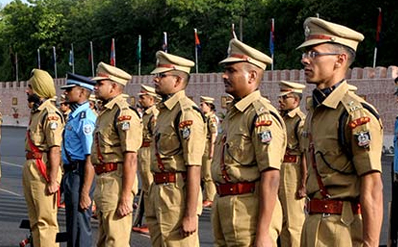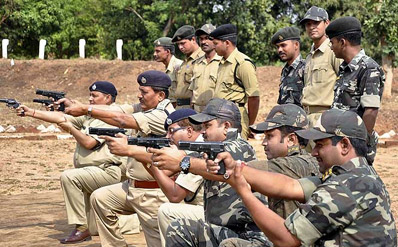Senior police officers of the Imperial Police (IP) were appointed by the Secretary of State, on the basis of a competitive examination, before independence. The first open civil service examinations were held in England in June 1893. Top ten candidates were appointed in the Indian (Imperial) Police on probation.
In 1907, the Secretary of State's officers were directed to wear the letter "IP" on their epaulettes in order to distinguish them from the officers not recruited by the Secretary of state through examination. Soon after India's freedom in 1948, the Imperial Police were replaced by the Indian Police Services (IPS).
Commissions and Committees
 National Police Commission
National Police Commission
It was the first commission set up by the Government of India to report on policing. In 1979, it began sitting, in the context of a post - Emergency India and produced eight reports, including a Model Police Act, between 1979 and 1981.
 Ribeiro Committee
Ribeiro Committee
In 1996, two former senior officers had filed a Public Interest Litigation (PIL) in the Supreme Court. It asked the courts to direct governments to implement the recommendations of the National Police Commission. The Supreme Court directed the government to set up a committee to review the Commission's recommendations and thus, Ribeiro Committee was formed. The Committee under the leadership of J.F. Ribeiro, former chief of Police, sat over the committee in 1998 and 1999, and produced two reports.
Padmanabhaiah Committee
In 2000, a third committee on police reform was set up by the government. It was under the leadership of former union Home Secretary, K Padmanabhaiah. It was in the same year that the committee released its reports.
Malimath Committee Report
In 2005, a group, headed by the former Attorney General, Soli Sorabjee, was put together by the government to draft a new Police Act for India. The Committee submitted a Model Police Act to the Union Government in late 2006.